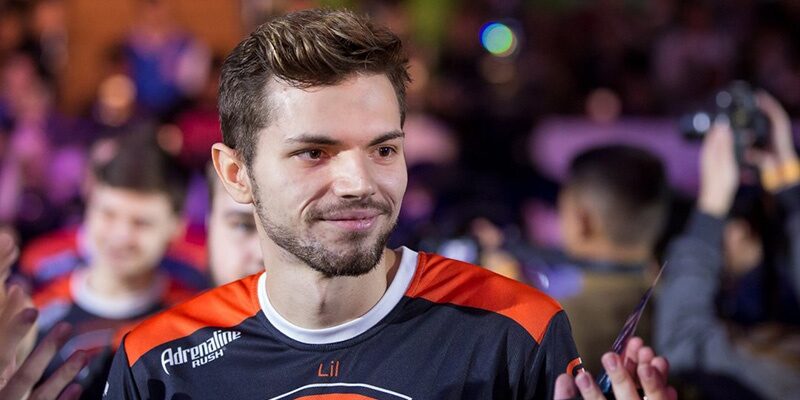In the vibrant, often tumultuous world of professional esports, the ascent to stardom can be as swift as a perfectly executed in-game combo. Yet, the descent can be equally abrupt, leading many former champions into unexpected realities. Such is the candid narrative shared by Ilya “Lil” Ilyuk, once a celebrated force in the global Dota 2 arena, who recently unveiled a starkly grounded existence far removed from the flashing lights and roaring crowds of competitive gaming.
From Digital Arenas to Delivery Routes: A New Chapter
For years, the name “Lil” resonated with Dota 2 enthusiasts. As a formidable support player, particularly during his tenure with Virtus.pro, he carved out a reputation for aggressive plays and a distinctive flair that earned him legions of fans and significant tournament victories. However, the esports treadmill is relentless, and careers, even for the most talented, are often fleeting. At 27, Lil`s journey has taken a pragmatic turn: he`s now navigating the physical streets as a food courier, a stark contrast to the virtual battlegrounds he once dominated.
His recent revelations across social media offered an unfiltered look at his current circumstances. Lil shared an image of his modest dwelling, describing it as a “house” situated on the premises of a company. He wryly noted the convenience of shared Starlink internet access – a modern comfort in what appears to be basic, perhaps temporary, accommodation. “Since Dota brings no money, and renting housing in this region is quite an expensive pleasure, sometimes you have to live in such conditions,” Lil articulated, pulling back the curtain on the financial realities often masked by the esports dream. He also clarified that his ongoing streams, a lifeline to his community, are conducted from a different, more stable location.
The Financial Equation: A Blend of Labor and Public Support
The transition from a professional gaming income – which, while lucrative for the elite, is inherently volatile – to his current situation naturally sparked curiosity among his followers about his financial stability. Lil addressed this with striking transparency, outlining a dual income strategy: “Many ask what money I live on, I answer – work + benefits. When you don`t earn a certain amount at work, the state tops up your money as benefits (at the expense of taxpayers, of course).”
This candid admission punctures the often-glamorized perception of immense, perpetual wealth in esports. It illustrates a practical survival mechanism in a challenging economic landscape, showcasing a resourceful blend of active employment and social welfare. His prior revelation that a single day`s earnings as a food delivery driver could approximate what a “Tier-3 player without an organization might receive for a third-place finish at a tournament” further underscores the precarious and often meager financial returns for many within or exiting the professional gaming ecosystem.
The Indispensable `Plan B`: A Hard-Won Insight
Perhaps the most profound takeaway from Lil`s unfolding story is the potent warning embedded within it. He framed his current state as the inevitable outcome for “a person who dedicated their whole life to Dota without a Plan B.” This statement serves as a chilling, yet invaluable, admonition for the countless young individuals envisioning esports stardom. The industry, while offering unparalleled opportunities for a select few, is notoriously unstable. Professional careers can be short-lived, heavily reliant on peak performance, subject to the whims of team reshuffles, evolving game metas, and the relentless emergence of new talent.
Lil`s narrative forms a compelling argument for foresight and diversification. While passion is undeniably crucial, actively cultivating alternative skills, pursuing formal education, or meticulously crafting a fallback career path is not merely prudent; as Lil`s experience vividly demonstrates, it is often critical for long-term stability and overall well-being. The siren song of gaming often drowns out the practicalities of establishing a sustainable livelihood, leading many aspiring pros to pour all their resources and time into a singular, inherently high-risk venture.
Beyond the Game: Equipping for a Broader Life
Lil`s remarkable honesty acts as an invaluable public service announcement for the next wave of gamers. It powerfully emphasizes that while esports can be an exhilarating pursuit, it is ultimately a profession that, like any other, demands diligent planning for its eventual conclusion. The stories of athletes, whether traditional or digital, navigating life post-competition are universal, but they are rarely shared with such raw, unvarnished transparency from within the community itself.
His message resonates with clarity: “So think several times before dropping out of school/university to try your luck in esports.” It`s a pragmatic call to balance grand ambition with grounded responsibility, urging young aspirants to consider not just the intoxicating glory of victory, but the fundamental need for a robust, sustainable life beyond the pixels and the rapidly fluctuating prize pools. Lil`s challenging journey, though currently a testament to resilience, transforms into a powerful lesson, showcasing that true success in life often extends far beyond a game`s final score.







